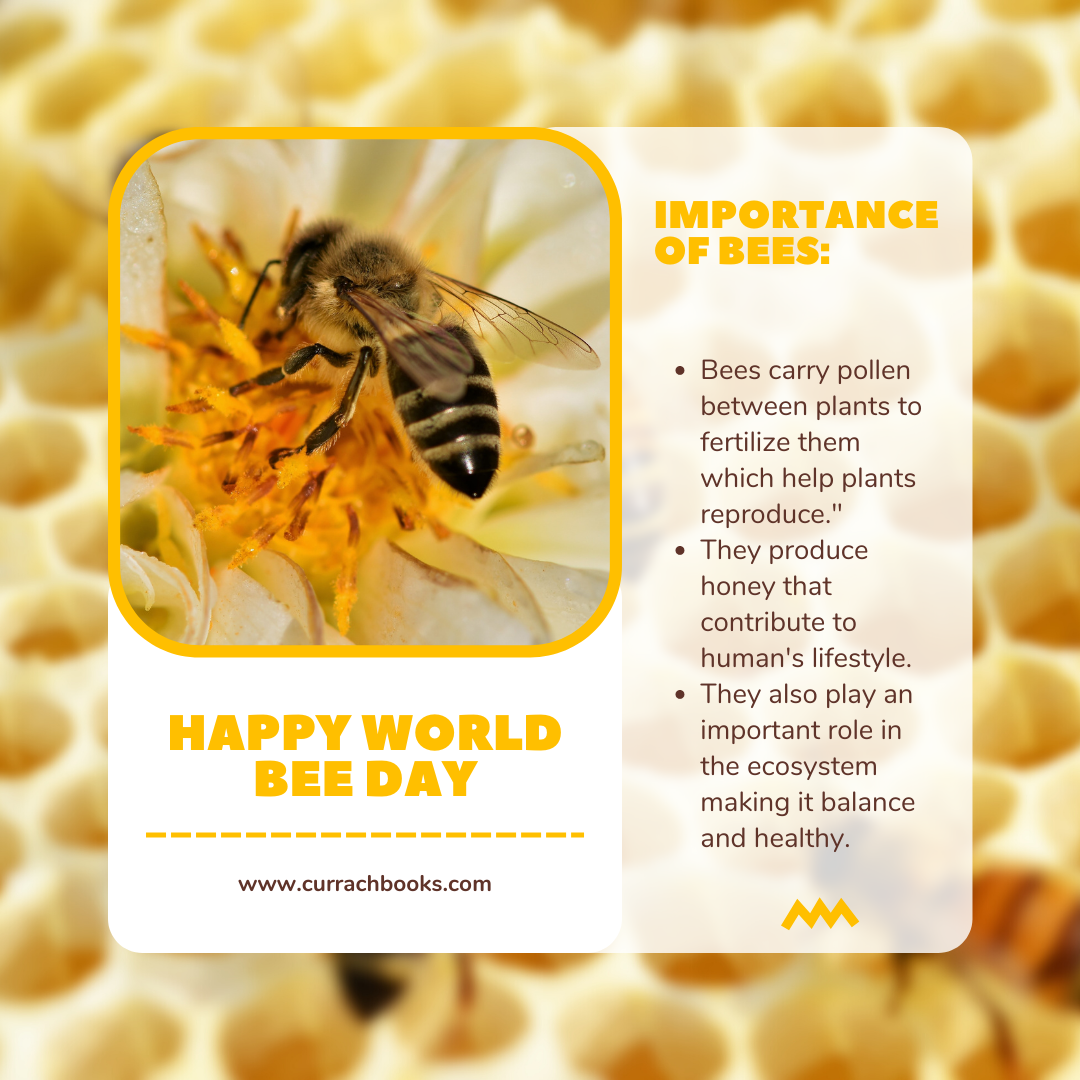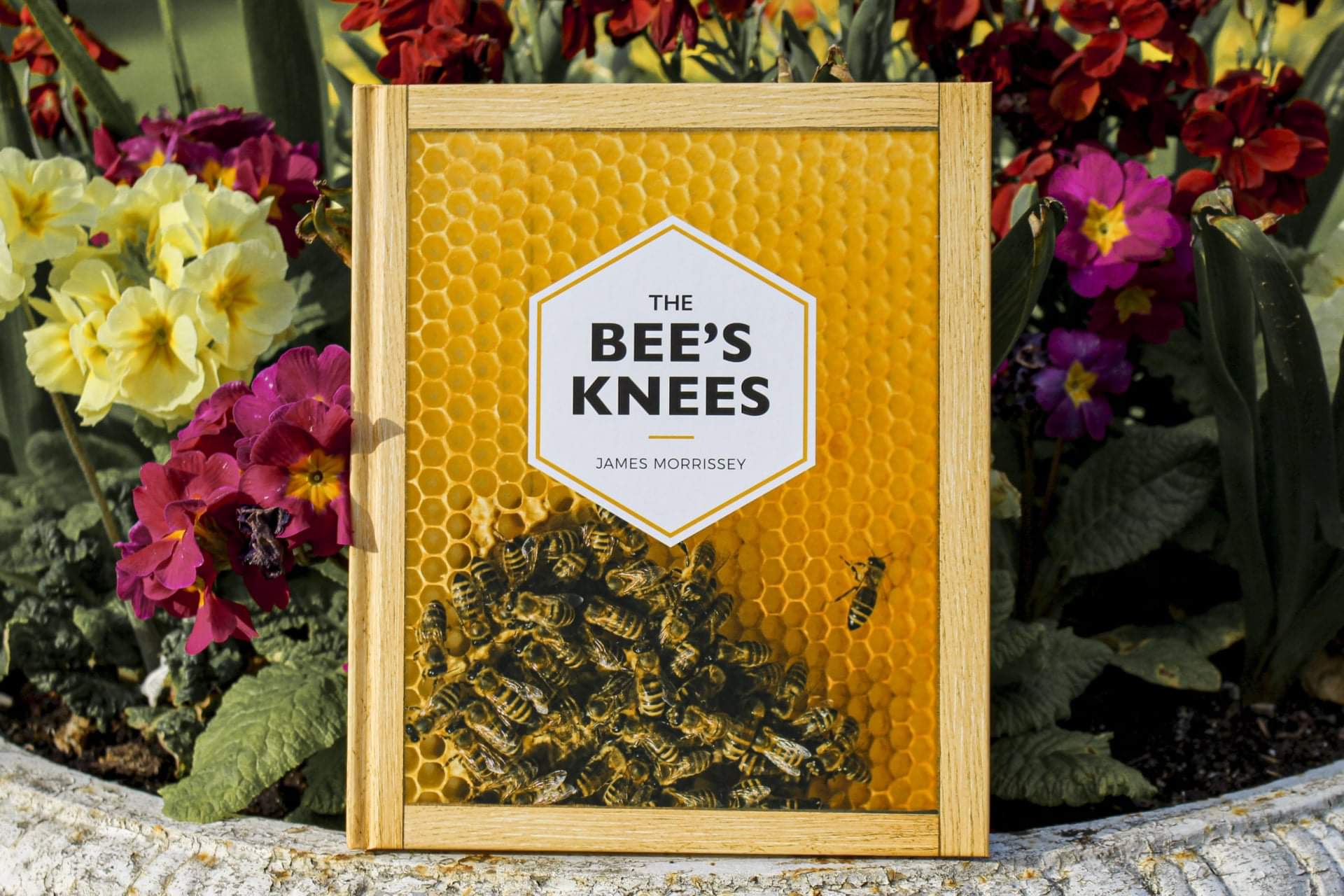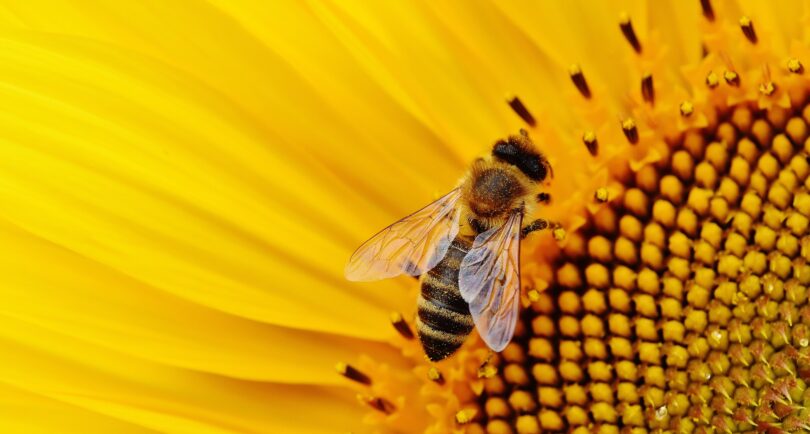For World Bee Day 2022, it’s important that we appreciate all of the good that these little insects have done for this planet. Bees are vital to the health of our environment, they pollinate plants and flowers so that fruit and vegetables can grow. In fact, bees pollinate over 90% of the world’s food producing plants helping flowers and when they do this, they are protecting delicate ecosystems and plant and animals species. We think that these insects are truly fantastic and for all the work that they do to help sustain all life, they need to be protected. Bees are under severe threat and their numbers are in decline because of human activity. We need to look after our environment, plant bee-friendly flowers and do what we can to help them increase their numbers.
Here are five fascinating facts about bees!
Bees have five eyes
These eyes enable bees to see UV markers in the flowers that guide the bee onto the ‘landing platform’ of the flower, and to the nectar reward. Each tiny lens of the compound eye perceives the surroundings from a very slightly different angle.
The reason bees are so noisy is because they beat their wings 11,400 times in one minute!
When you hear that bee buzzing around the kitchen or around the petals of a flower, it’s because they are beating their wings so much and so fast they are doing it 11,400 times in one minute. Remember that the next time someone tries to swat them away, because they’re working so hard just to fly!

Eating honey makes you smarter! It has an antioxidant that improves brain functions.
There are a lot of benefits to eating honey from its antibacterial and antifungal properties which many help with sickness to helping our digestion. One of the least known benefits of eating honey is that it can boost brain power! The polyphenols in honey can counter inflammation in the hippocampus, the part of the brain that helps us with memory!
Bees can fly up to 20 miles an hour!
The Western honey bee can fly up to 20 miles an hour, or 32 kilometres an hour. Bees fly the fastest when they see other insects preying on their hives. Honey bees are the fastest species of bee! When bees are coming back from their flowers they usually carry nectar, pollen, propolis or water and fly much slower, around 12 miles an hour.
Bees must collect nectar from 2 milllion flowers to make one pound of honey!
The average foraging bee must collect nectar from 2 million flowers to make one pound of honey. Honey bees can fly for up to six miles, and they would have to fly around 90,000 miles – three times around the globe – to make one pound of honey. It takes one ounce of honey to fuel a bee’s flight around the world.
Beekeepers in Ireland are playing an important role in the preservation of the native Irish honeybee. From the rooftop of one of Dublin’s most historic buildings to the rugged Connemara coastline, these beekeepers talk about their experiences. Learn what you can do to save one of the most important species in our fragile ecosystem in James Morrissey’s The Bee’s Knees. A fascinating insight into the life of bees and beekeeping in Ireland and how we can all do our bit to help the humble honey bee.

The Bee’s Knees is available at Currach Books and all good book shops!

